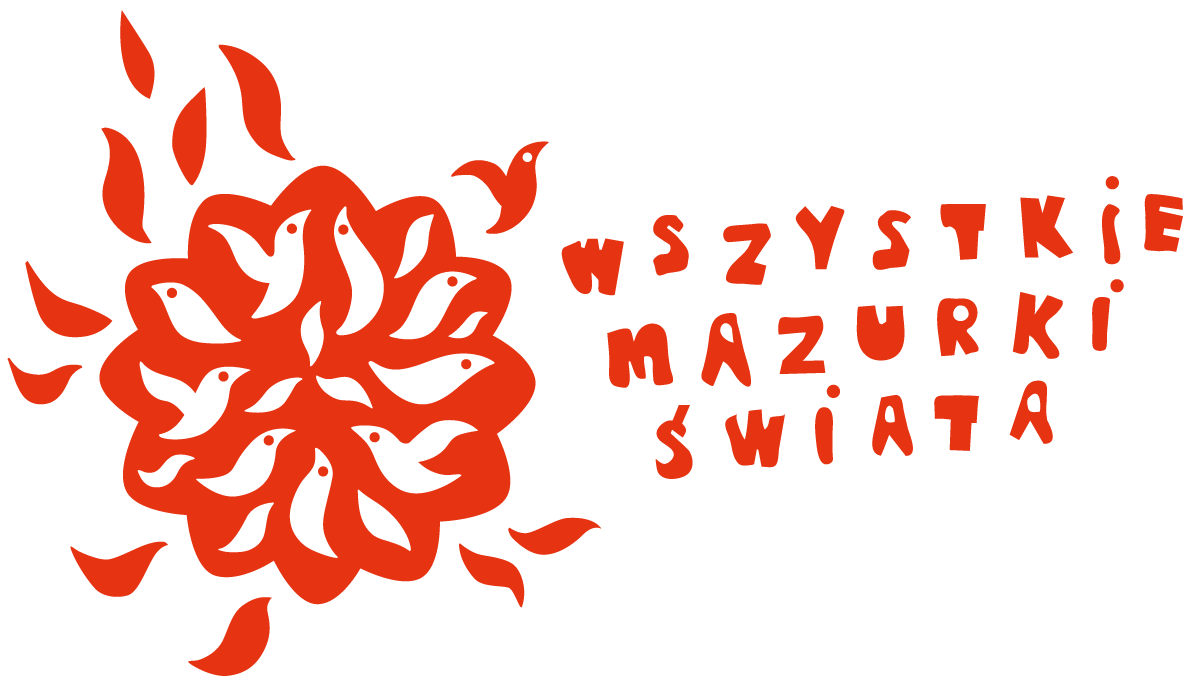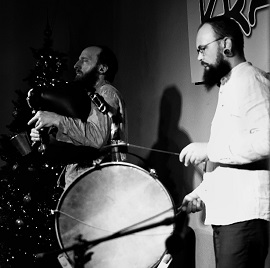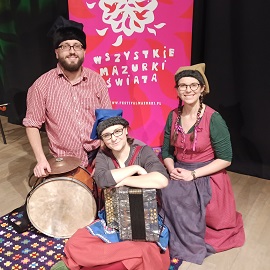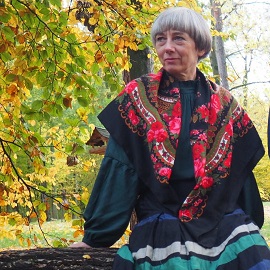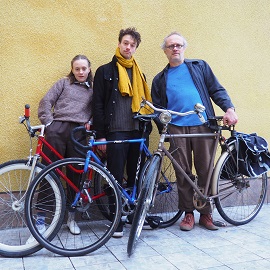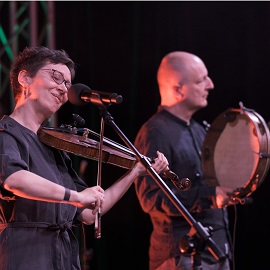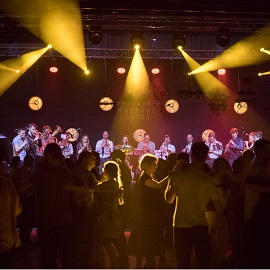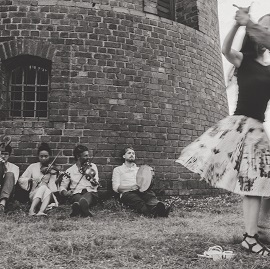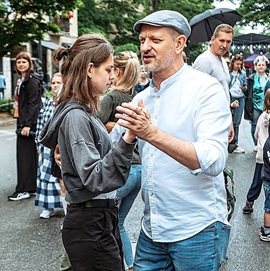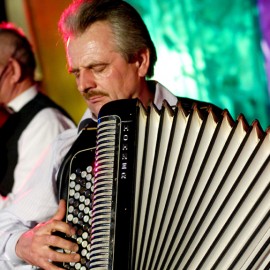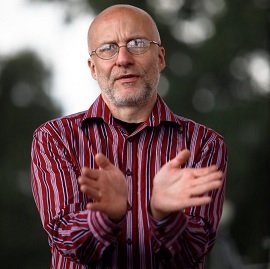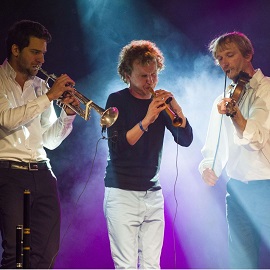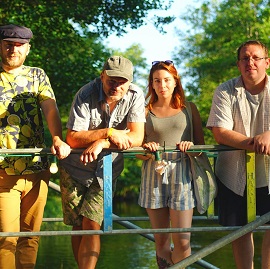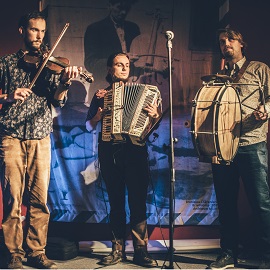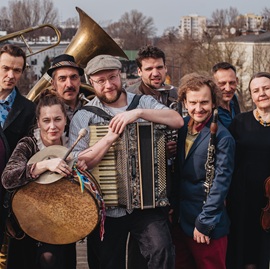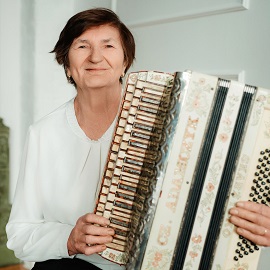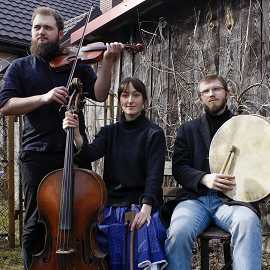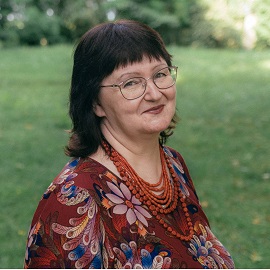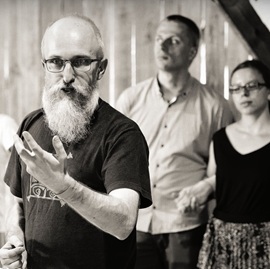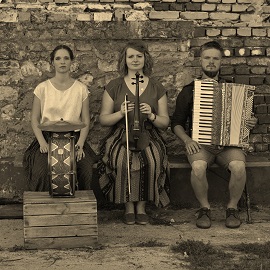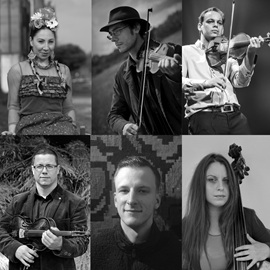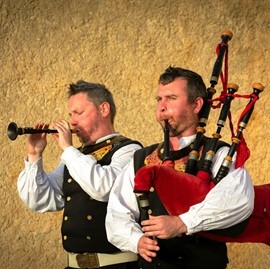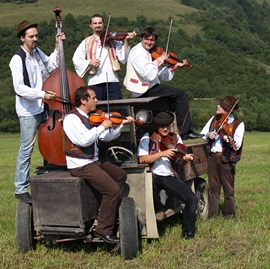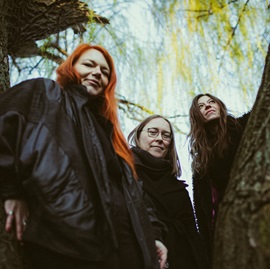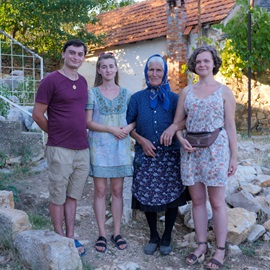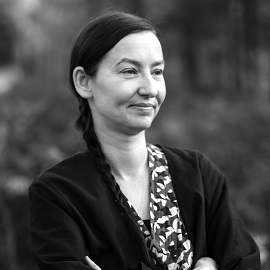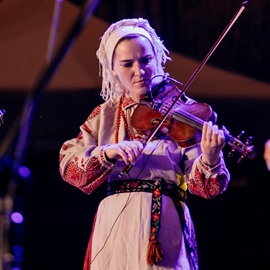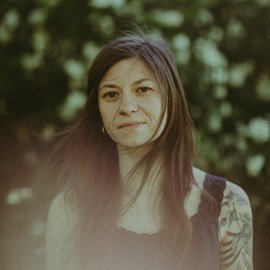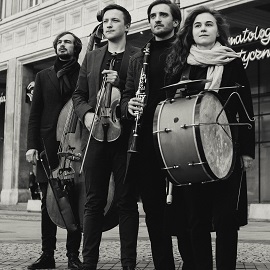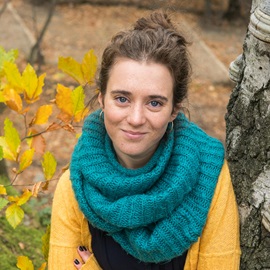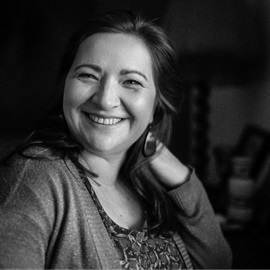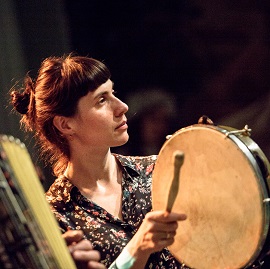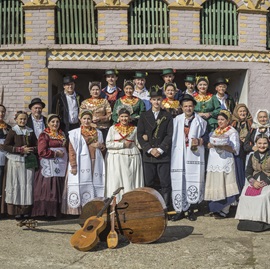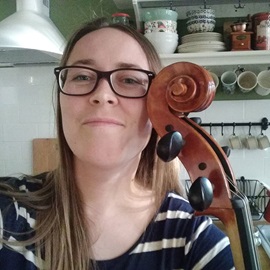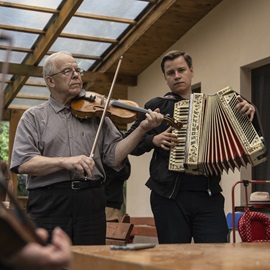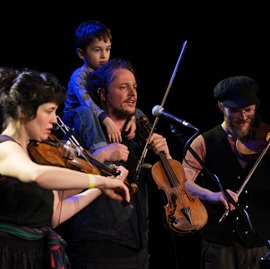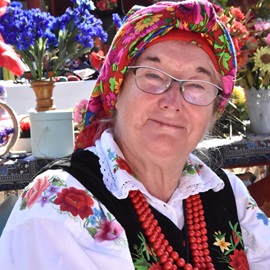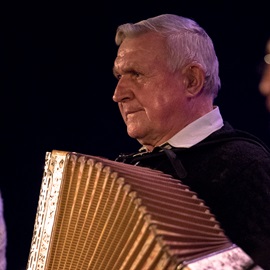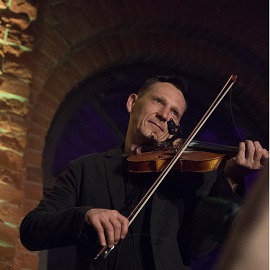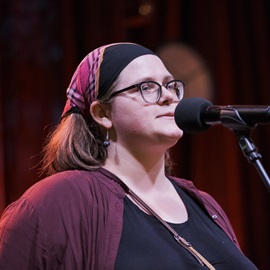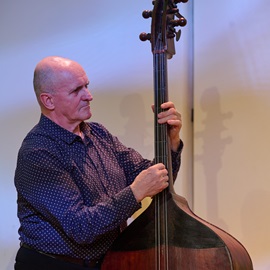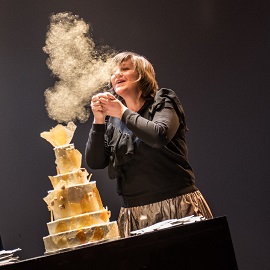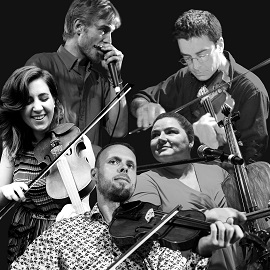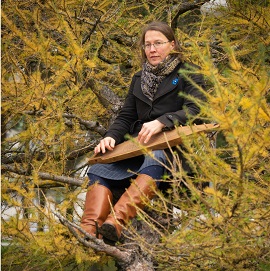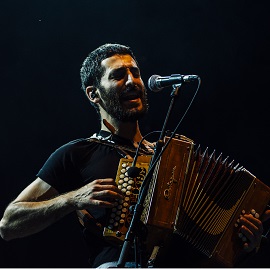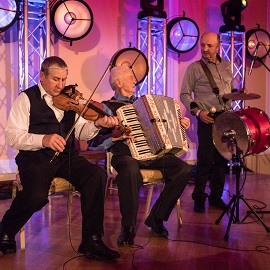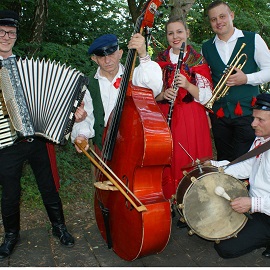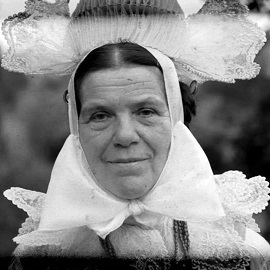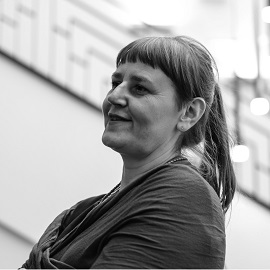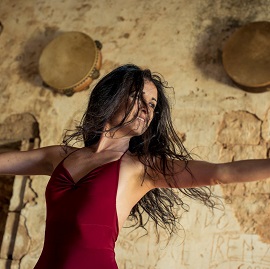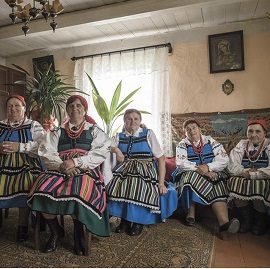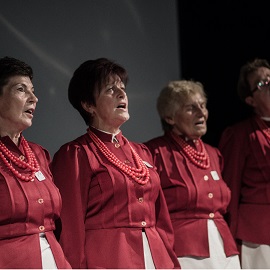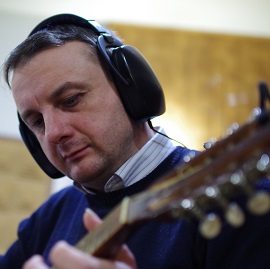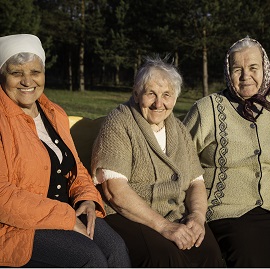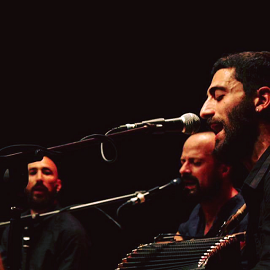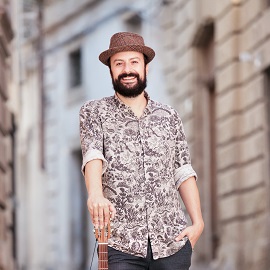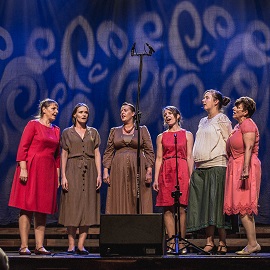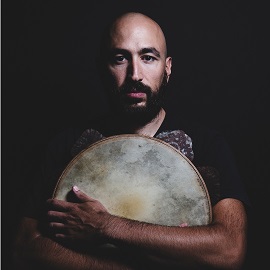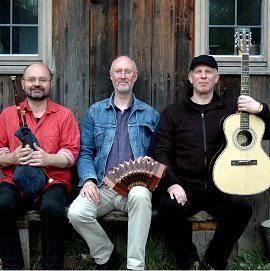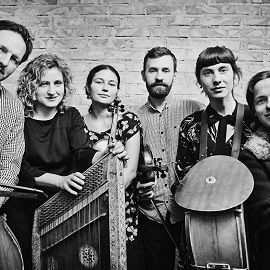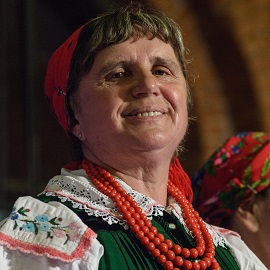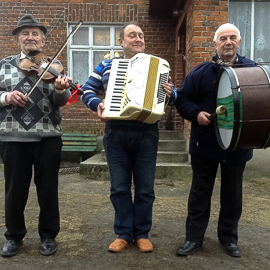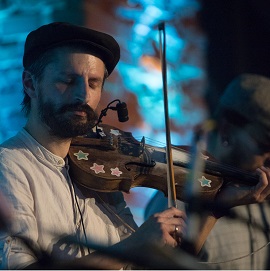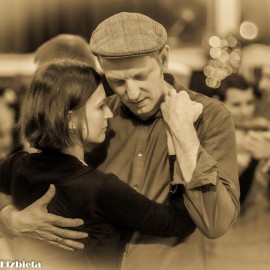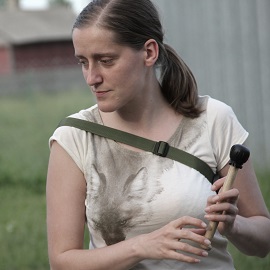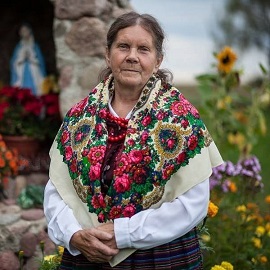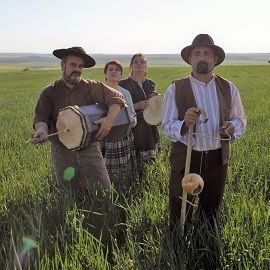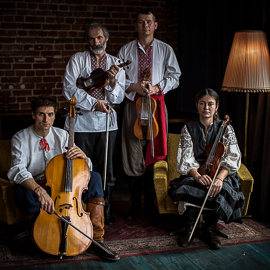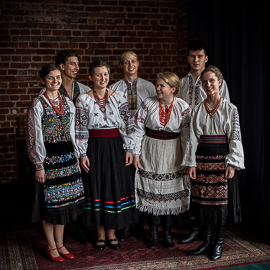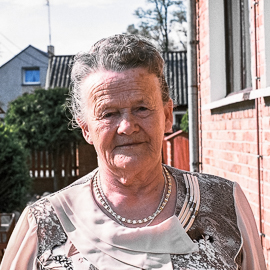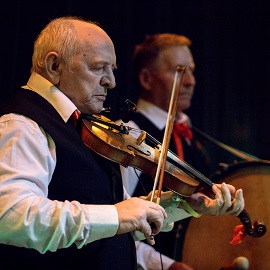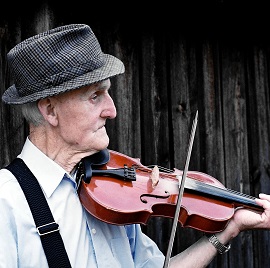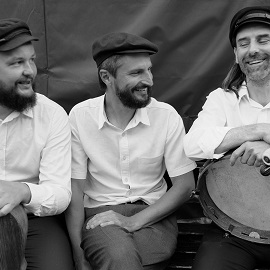Sisters Klervie and Awena Guélou
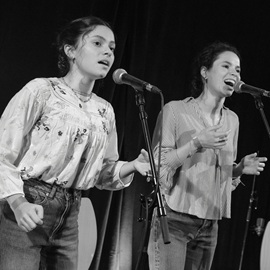
Klervie and Awena sing the traditional kan ha diskan* (call-and-response singing accompanying dances). In 2023, they gave their first stage performance at the Kan ar Bobl competition and their career snowballed ever since! For nearly three years, they sing at the festoù-noz all over Brittany (Festival Fisel, La Nuit de la Gavotte, Festival de Kleg, Vieilles Charrues Festival). Their repertoire is made up mainly of the Kreiz Breizh (central Brittany) dances, such as the gavot, the plinn, and the kost ar c’hoat, which they always sing in Breton.
The sisters come from Trégor and live near Guingamp, Côtes-d’Armor. They attended a bilingual French-Breton school and feel comfortable using both languages. From early childhood, they were immersed in the Breton culture – many members of their families played in the traditional pipe orchestras bagads or danced in circles at the festoù-noz. Others played in dance bands.
What Klervie and Awena appreciate most about the kan ha diskan dances is the sense of community created between the singers and the dancers, and the authentic sense of sharing. “When we sing, the energy flows between us and the dancers. After a performance, it’s easy to talk to each other – people come over to us to have a chat and exchange ideas. Kan ha diskan is not very popular among young people in Brittany, but it definitely ought to be!” says Klervie.
Awena is 16 and is a high-school student. She plays the diatonic accordion. Klervie is 24 and she teaches at a bilingual Breton-French school. They both dance the circular Breton dances at the Korriganed Pañvrid at the Pommerit-le-Vicomte, where Klervie has been a choreographer for the past few years.
*Kan ha diskan – traditional Breton call-and-response singing. The kan ha diskan songs are usually performed by two singers. The first person offers a melody and words, the other joins in at the end of the phrase which they repeat (sometimes with some small musical “embellishments”).
The kan ha diskan songs are sung for dancing. Their idea is to have a “never-ending song” (the Breton dances are often called circular dances, or dances in circle).
Source: Wikipedia
**Fest-noz (pl. festoù-noz) – Breton for “night party.” A traditional dance festival rooted in group dancing with live singing and instrumental music. Some of the dances date back to the Middle Ages. In 2012, the fest-noz was added to the UNESCO cultural heritage list.
